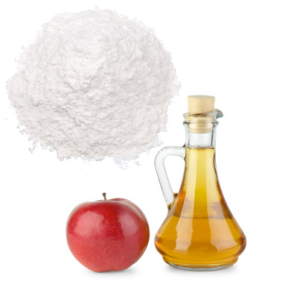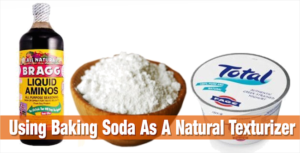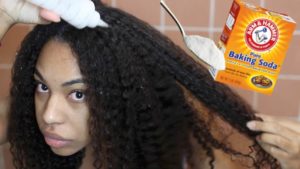Baking Soda And ACV Are NOT Effective Cleansers - Now Here Is A Little Proof

The lovely ladies over at Black Girl Long Hair did some really great experimentation last week. As is evident from the title of this post I’m sure it will surprise a lot of you who have given up your shampoos in favor of ACV or baking soda. If you refer to their post here you will see that the final conclusion was that ACV and baking soda when used as a means to cleanse hair do not remove oil and buildup as would shampoo. On the other hand a clay cleanser or even a co-wash with conditioner do quite a good job.
We loved the article because it not only gave us conclusions, but gave us visuals. How many times have you heard that baking soda and ACV are natural cleansers and if you wanted a natural approach to the removal of gook and grime, those two are usually high on the list of suggestions. When I first read the article my first thought was…. see, I knew those things couldn’t clean nothing, but then my second thought was, that we typically do not use them to cleanse our hair do we?
We often hear about the non stripping benefits of ACV and baking soda when used to gently clean the scalp. We hear that they are the best natural alternative to shampoo because they kill germs and bacteria on the scalp without removing the natural oils* or stripping the hair. It would appear that the entire point of these natural cleansers are not so much to clarify but to kill germs and bacteria.
With that said if you look at the results of the experiment it is highly unlikely that both agents when used to remove added oil (not produced by the scalp) would have done a great job.
The best way to use ACV in particular is as a final rinse because it has a calming effect on the hair strand, closing the cuticles making the hair smooth and easier to handle. We always suggest that if you have a buildup, excessive oils* and silicone residue, washing your hair with ACV or baking soda alone will not cleanse your hair, rather you might need to use sulfates in particular to remove silicones or a co-wash along with ACV as a final rinse to remove week to week oily build up.
In regards to those women do actually practice no poo methods of cleansing their hair using only ACV and or baking soda, you will also notice that these women probably do not use silicones, and they do not use heavy oils and butters* either. All in all we love to see some proof in the pudding so we are grateful the the Natural Haven took the time to look under her microscope sharing her findings as seen below:
Oily hair becomes completely clean after being shampooed.

Baking Soda Wash and ACV wash – Oil remains on the hair

Other things to consider
You know by now that not all heads are created equal so the results in the experiment do not have to be your results it all depends on your hair and what you use on it.
Both ACV and baking soda have their benefits and you can use them according to what you know they can do scientifically to your hair. For instance if you need a great way to close the cuticles of your hair strand ACV is great or if you need to temporarily raise the porosity of your hair to aid in better conditioning then baking soda is your guy. If you want to use them as cleansers be aware that they might not be as effective as other natural products like clay that bind to oil or shampoo that actually strip oil.
All in all its your choice, the experiment is at its best, interesting.




